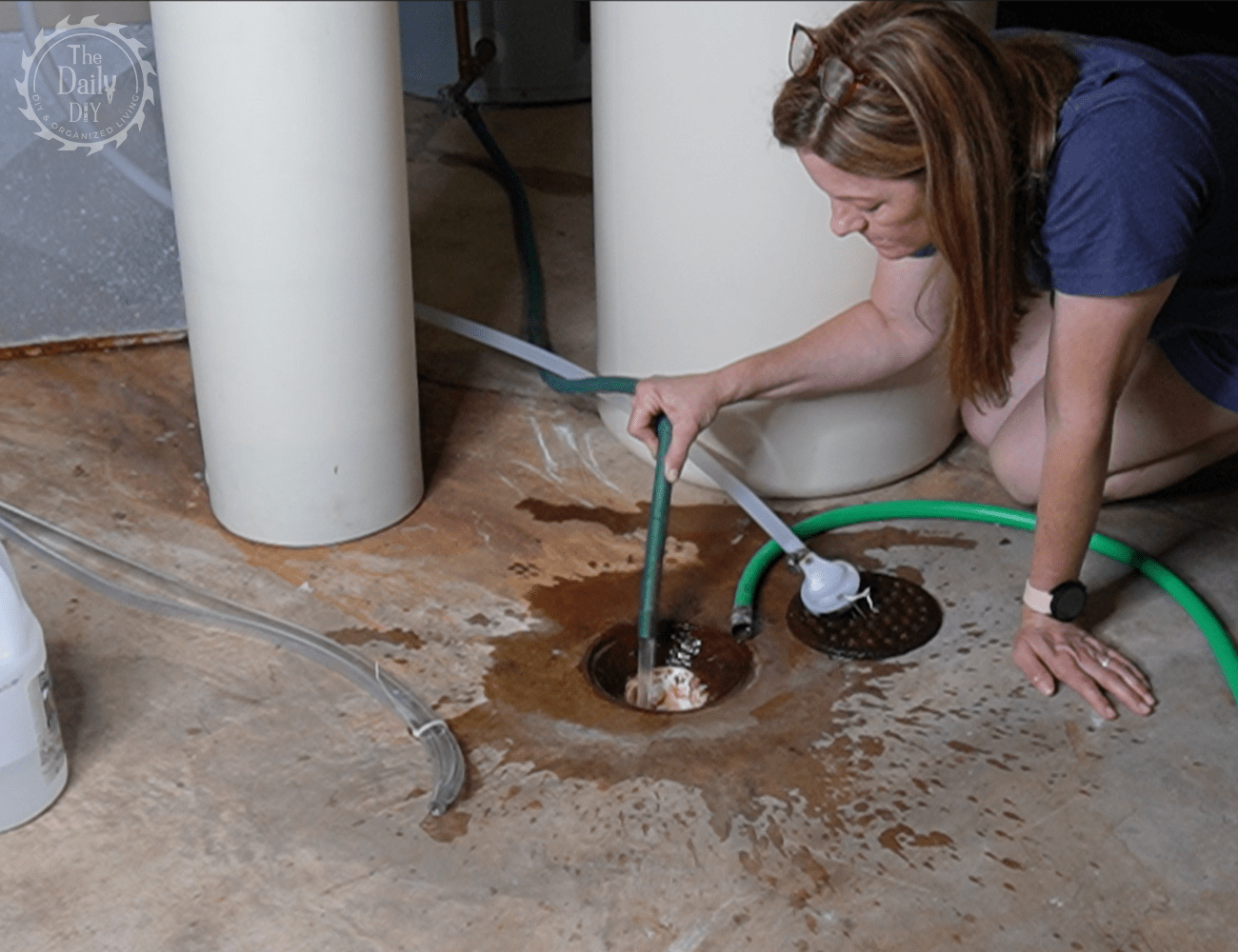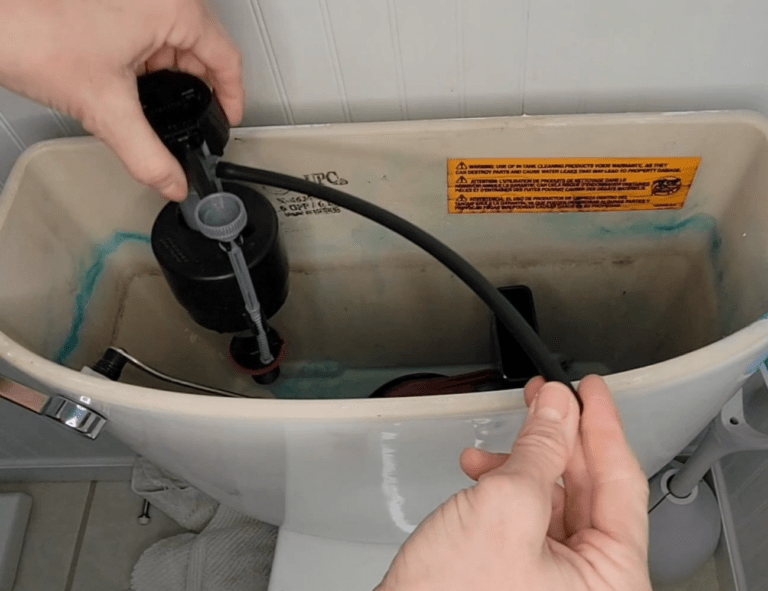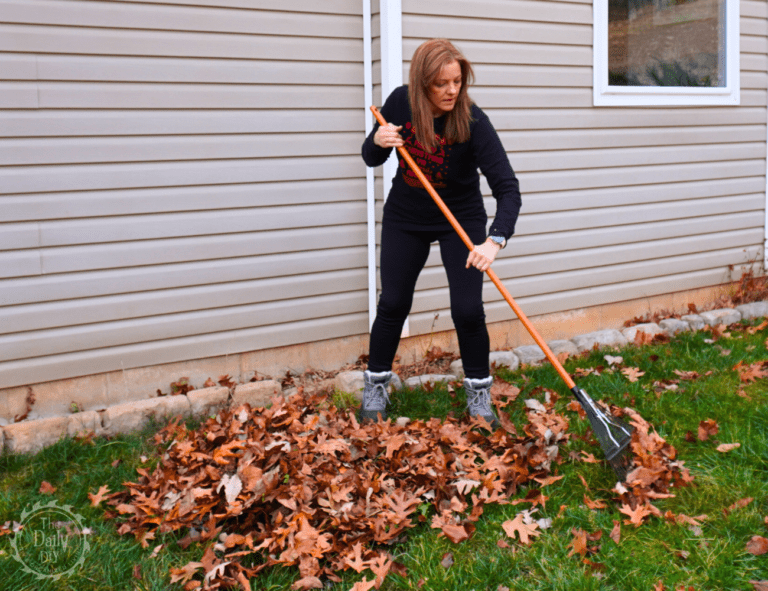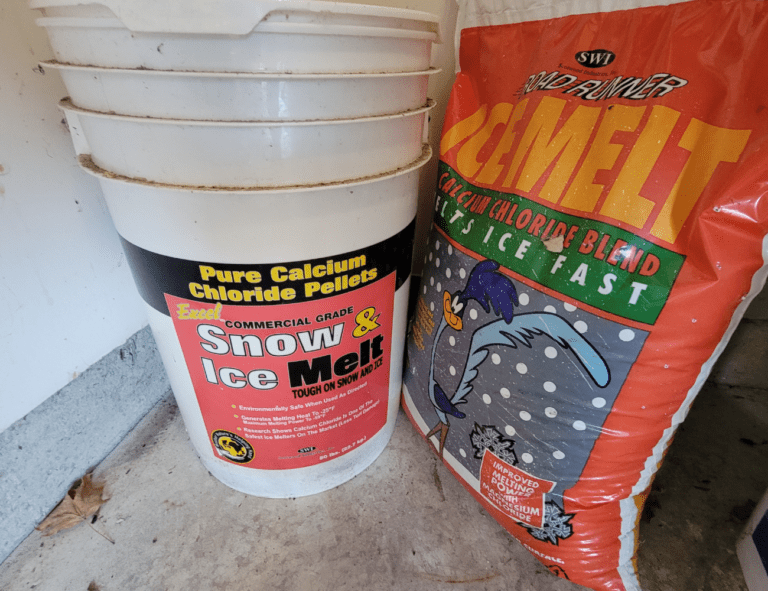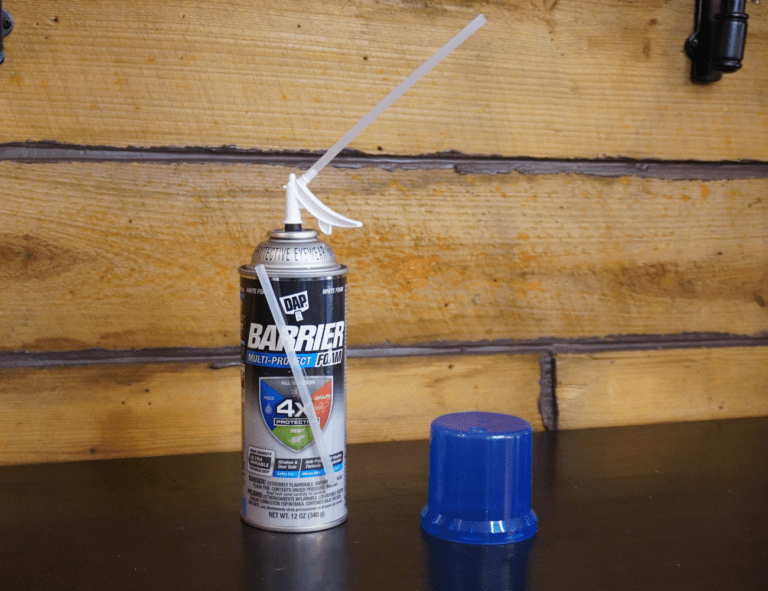Best Way To Clean Your Basement Drain
A clogged basement drain can lead to issues, like water backups, foul odors, and even water damage. It’s crucial to understand how to clean your basement drain and the drain pipe.
Here we’ll show you a simple, non-toxic way to clean your basement floor drain pipe. By using the right techniques and tools, you can keep your drain clear of debris and make sure it works properly.
Signs of a Clogged Basement Floor Drain
Learn to identify the signs of a clogged basement drain. Addressing the issue fast is key to preventing further damage. Here are a few telltale signs that your basement drain may have a clog:
1. Slow draining or standing water in the basement:
If you notice that water takes longer than usual to drain from sinks, showers, or other fixtures in your basement, it may be a sign of a clog. Additionally, standing water in the basement, especially near the drain, indicates a blockage that is hindering the water’s flow.
2. Unpleasant odors coming from the drain:
Foul smells coming from the basement drain are often a clear sign of a clog. The accumulation of organic matter, such as hair, soap scum, or food particles, can produce an odor. This can be particularly noticeable when the drain is in use or during hot and humid weather.
3. Gurgling sounds or air bubbles in other fixtures:
A clogged basement drain can cause air bubbles or gurgling sounds to occur in nearby fixtures, such as sinks or toilets, when water is draining. These noises result from trapped air trying to escape due to the blocked drain, indicating a need for immediate attention.
If you observe any of these signs, address the clogged drain ASAP to prevent further problems. Ignoring the issue can lead to water damage, increased pressure on the plumbing system, and potential health hazards due to stagnant water.
How To Clean the Basement Drain Pipe With a Natural Cleaner
When it comes to cleaning your basement drain, you don’t always have to rely on commercial drain cleaners. Homemade drain cleaners can be an effective and cost-efficient alternative. Here are a few recipes for homemade drain cleaning solutions:
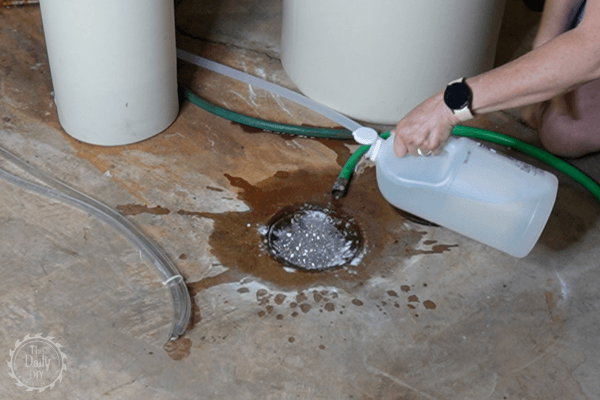
Baking Soda and Vinegar:
This classic combination is a natural and effective way to unclog drains. Start by pouring half a cup of baking soda down the drain. Follow it up with half a cup of white vinegar. The mixture will create a fizzing reaction, which helps break down debris and clear the clog. Let it sit for about 15 minutes, then flush the drain with hot water. Repeat a few times as necessary.
Hot Water and Dish Soap:
If the clog is minor or caused by grease or oil buildup, a simple solution of hot water and dish soap can do the trick. Start by pouring hot water down the drain. Follow it up with a generous amount of dish soap. The hot water helps dissolve the grease, while the soap acts as a lubricant to ease the clog. Let it sit for a few minutes before flushing the drain with more hot water.
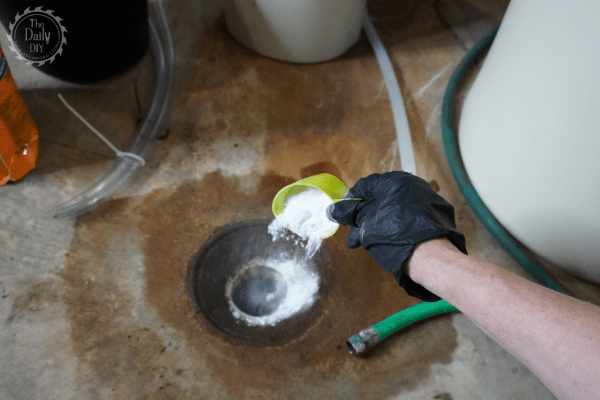
Baking Soda, Salt, and Cream of Tartar:
This homemade drain cleaner is particularly effective against tough clogs. Mix equal parts baking soda, salt, and cream of tartar in a bowl. Pour the mixture down the drain and let it sit for an hour or overnight. Flush the drain with hot water to remove the loosened debris.
It’s important to note that while homemade drain cleaners are generally safe for most drains, they may not be suitable for all types of plumbing systems or severe clogs. Exercise caution and avoid using these methods if you have recently used commercial drain cleaners or if you suspect a more complex plumbing issue.
If the homemade drain cleaners do not resolve the clog or if you encounter recurring issues, consult a professional plumber for further assistance.
Maintaining a Clean Basement Drain
Once you have successfully cleaned your basement drain, it’s important to establish a maintenance routine to keep it clean and prevent future clogs. Here are some tips to help you maintain a clean basement drain:
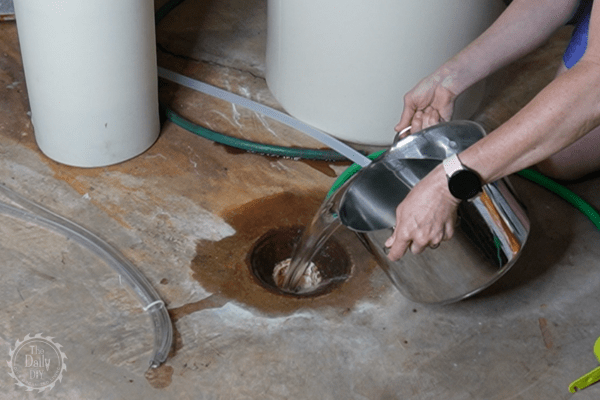
Regular Flushing:
One of the simplest ways to keep your basement drain clear is to flush it regularly with hot water. Once a month, pour hot water down the drain to help dissolve any buildup of grease, soap residue, or other debris that may accumulate over time.
Regular Inspections:
Periodically inspect the drain for any signs of potential issues. Look for slow draining, foul odors, or gurgling sounds, as these may indicate the early stages of a clog. Addressing clogs promptly can prevent them from worsening.
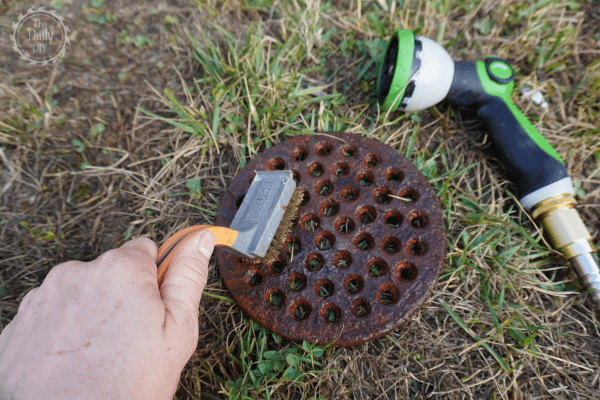
Install Drain Covers:
To prevent debris from entering the drain and causing clogs, consider installing drain covers or strainers. These inexpensive devices can catch hair, food particles, and other objects before they enter the drain. Regularly clean the drain covers to remove trapped debris.
Maintaining a clean basement floor drain and pipe is essential for the proper functioning of your plumbing system and preventing potential issues such as water backups, odors, and damage. Make this part of your home maintenance checklist. You can get a free copy of the Home Maintenance Checklist here.
Additionally, establishing a regular maintenance routine and taking preventive measures can help keep your basement drain clean and minimize the risk of clogs. Regular flushing with hot water is an easy step to ensure a clean and well-functioning drain.
Remember, if you encounter persistent or severe clogs, or if you’re unsure about handling the cleaning process, seek professional assistance. Professional plumbers have the expertise and tools to address complex issues and provide guidance tailored to your specific needs.

